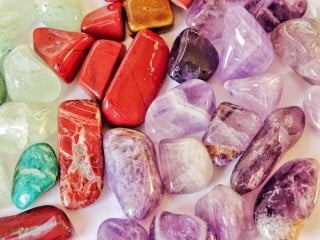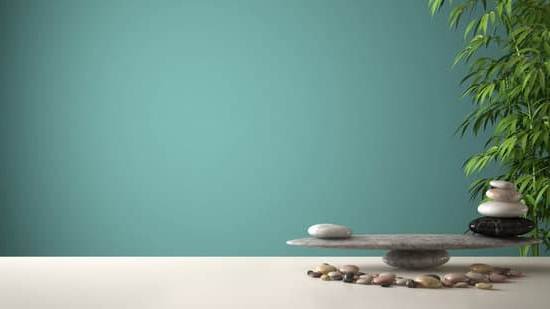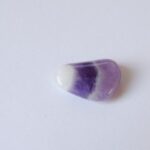In the practice of Feng Shui, the arrangement and design of a bedroom are believed to have a profound impact on one’s well-being and energy levels. This ancient Chinese philosophy emphasizes the importance of creating a harmonious and balanced living space, with particular attention to the use of color.
Understanding the significance of color in Feng Shui for the bedroom is crucial in promoting relaxation, rejuvenation, and overall positive energy flow. When it comes to selecting the best color for your bedroom according to Feng Shui principles, various factors such as personal preferences, cultural beliefs, and even the orientation of the room can come into play.
The choice of color in your bedroom can significantly influence your physical health, mental outlook, and emotional state. In Feng Shui, each color is associated with specific elemental properties and has unique effects on one’s mood and energy levels.
By incorporating these principles into bedroom design, individuals can create spaces that support restful sleep, relaxation, and vitality. Explore how the five elements in Feng Shui – wood, fire, earth, metal, and water – correspond to different colors to optimize your bedroom for improved well-being.
To achieve a sense of tranquility and balance in your bedroom according to Feng Shui principles, consider incorporating colors that promote peace and serenity. Whether it’s through calming blues or grounding earthy tones, understanding how each shade can enhance the overall energy flow within your sleeping space is essential for creating a restorative environment. Additionally.
emphasizing personal preferences while maintaining Feng Shui guidelines allows for a personalized approach to incorporating the best colors for optimal harmony in your bedroom decor.
Understanding the Significance of Color in Feng Shui for the Bedroom
Feng Shui is an ancient Chinese practice that focuses on harmonizing individuals with their environment. It emphasizes the arrangement of objects and use of colors to create a balanced and harmonious space. When it comes to bedroom design, Feng Shui plays a crucial role in promoting relaxation, healing, and overall well-being.
In Feng Shui, the choice of color in the bedroom is highly significant as it can greatly impact the energy flow within the space. Different colors are associated with specific elements and have varying effects on emotions and mood. Understanding the significance of color in Feng Shui for the bedroom is essential for creating a peaceful and balanced sanctuary for rest and rejuvenation.
Based on the Five Elements – Wood, Fire, Earth, Metal, and Water – different colors are believed to influence various aspects of life. For example, blue and green are associated with the Water element, representing tranquility, calmness, and clarity. On the other hand, red and pink are related to the Fire element, symbolizing passion, love, and warmth. Earthy tones such as browns and tans correspond to the Earth element, signifying stability, nourishment, and grounding.
When it comes to choosing the best Feng Shui color for the bedroom, it’s important to consider one’s personal preferences while also keeping in mind the desired energy for the space. Whether one opts for calming blues or passionate reds, creating a serene atmosphere with positive energy should be at the forefront of bedroom design using feng shui principles.
- Blue: Represents tranquility
- Green: Symbolizes growth and renewal
- Red: Signifies passion and warmth
- Pink: Associated with love and romance
- Earthy Tones: Provide stability and grounding
With careful consideration of these best Feng Shui colors in mind along with personal preferences or emotional needs one can create a serene atmosphere that supports both restful sleep impactful desires from possible dreams they aim to achieve by implementing feng shuionic designs while still maintaining those same principals as well.
Exploring the Best Colors for Feng Shui in the Bedroom Based on the Five Elements
The Five Elements theory in Feng Shui plays a crucial role in determining the best colors for a bedroom to promote harmony, balance, and positive energy flow. Each element – wood, fire, earth, metal, and water – is associated with specific colors that can be used to enhance the energy of the bedroom.
Wood is represented by the colors green and brown, symbolizing growth and vitality. These colors are ideal for promoting health and overall well-being in the bedroom. Fire is linked to reds, oranges, pinks, and purples, signifying passion and energy. These colors can be incorporated into the bedroom to ignite passion and promote intimacy.
Earth tones such as terracotta, beige, and sandy hues represent stability and nourishment. These colors are perfect for creating a grounded and serene atmosphere in the bedroom. Metal is associated with whites and pastels, representing clarity and precision. These colors can be used to create a clean and organized environment in the bedroom.
Lastly, water is represented by blues and blacks, symbolizing calmness and tranquility. These colors are excellent for promoting relaxation and peaceful sleep in the bedroom according to feng shui experts.
Although it’s important to consider the Five Elements when choosing bedroom color schemes based on Feng Shui principles, it’s also essential to take into account personal preferences and individual needs when selecting the best color for a feng shui-appropriate bedroom design.
| Feng Shui Element | Associated Colors |
|---|---|
| Wood | Green, Brown |
| Fire | Reds, Oranges, Pinks, Purples |
| Earth | Terracotta, Beige, Sandy Hues |
| Metal | Whites, Pastels |
The Calming and Soothing Effects of Blue and Green in the Bedroom
When it comes to creating a harmonious and balanced bedroom environment, the use of Feng Shui principles can make a significant difference. One of the key elements of Feng Shui in bedroom design is the choice of color.
In Feng Shui, color plays a vital role in influencing the energy flow and overall ambiance of the space. Understanding the significance of color in Feng Shui for the bedroom can help individuals make informed choices when it comes to creating a serene and tranquil sleeping area.
According to Feng Shui principles, blue and green are considered to be ideal colors for promoting a calming and soothing atmosphere in the bedroom. These colors are associated with relaxation, peace, and harmony, which are essential qualities for a restful sleep environment.
Blue is often linked to feelings of tranquility and serenity, making it an excellent choice for promoting relaxation in the bedroom. Green, on the other hand, is connected to nature and renewal, creating a sense of balance and vitality in the space.
Incorporating shades of blue and green into the bedroom decor can be achieved through various elements such as wall paint, bedding, furniture, decor accents, and artwork. Soft shades of blue or green on the walls can create a calm backdrop for the room, while incorporating these colors into bedding or upholstery can enhance their soothing effect.
Additionally, bringing natural elements such as potted plants or artwork featuring natural landscapes can further reinforce the calming and rejuvenating energy associated with blue and green in Feng Shui practices.
By understanding the calming and soothing effects of blue and green in the bedroom according to Feng Shui principles, individuals can create a tranquil sleeping space that promotes relaxation and rejuvenation. Whether through wall paint, bedding choices, or decor accents, incorporating these colors into the bedroom decor can contribute to a serene environment that supports restful sleep and overall well-being.
The Passionate and Energetic Impact of Red and Pink in the Bedroom
The use of color in Feng Shui is essential for creating a harmonious and balanced environment, especially in the bedroom. Red and pink are considered passionate and energetic colors that can bring warmth and vitality to the space when used properly.
The Power of Red
In Feng Shui, red is associated with fire energy, which symbolizes passion, love, and high energy. When incorporated into the bedroom, red can ignite feelings of romance and intimacy. However, it’s important to use red sparingly in the bedroom to avoid overwhelming the space. Consider adding small pops of red through decorative accents like throw pillows, artwork, or a statement piece of furniture.
The Softness of Pink
Pink, on the other hand, is a softer and more nurturing color that can still evoke feelings of love and romance. In Feng Shui, pink represents tenderness and affection while also promoting peaceful and calming energy. Soft shades of pink can be used on walls or bedding to create a soothing atmosphere in the bedroom.
When incorporating red or pink into your bedroom decor based on Feng Shui principles, it’s important to consider balance. Too much red can create an overly stimulating environment, while too much pink may cause the space to feel too passive. By strategically using these colors with intention and purpose, you can create a bedroom that exudes passion and energy while still maintaining a sense of tranquility and balance as recommended by feng shui best color for bedroom techniques.
The Nurturing and Grounding Nature of Earthy Tones in the Bedroom
When it comes to incorporating Feng Shui principles into bedroom design, the choice of color plays a crucial role in creating a harmonious and balanced space. Earthy tones are an excellent option for those seeking to foster a sense of stability, nurturing, and grounding in their bedroom environment. In Feng Shui, earthy tones such as beige, terracotta, and warm browns are associated with the Earth element, which represents stability, nourishment, and protection.
Beige is often considered one of the best earthy tones for the bedroom as it creates a sense of calm and warmth while also promoting a feeling of tranquility. This neutral hue can be paired with other earthy colors such as terracotta or warm browns to add depth and richness to the bedroom decor. Additionally, incorporating natural materials such as wood or stone in furniture and decor can further enhance the grounding nature of earthy tones in the bedroom.
In Feng Shui philosophy, the use of earthy tones in the bedroom is believed to create a stable foundation for rest and relaxation. By choosing colors that evoke a connection to nature and the earth, individuals can establish a nurturing environment that promotes feelings of security and balance. When combined with other elements of Feng Shui design such as proper furniture placement and clutter-free space, earthy tones can contribute to a tranquil and peaceful atmosphere in the bedroom.
| Earthy Tones | Feng Shui Element |
|---|---|
| Beige | Earth |
| Terracotta | Earth |
| Warm Browns | Earth |
Tips for Incorporating the Best Feng Shui Colors in the Bedroom Decor
When it comes to incorporating the best Feng Shui colors in the bedroom decor, there are several tips that can help create a harmonious and balanced space. From understanding color placement to choosing the right hues based on the Five Elements, these tips can help you achieve an optimal energy flow in your bedroom.
Color Placement
In Feng Shui, the placement of colors in the bedroom is crucial. For example, soft blues and greens are ideal for the walls and overall decor, as they promote tranquility and relaxation. However, bold or bright colors such as red and orange should be used sparingly and strategically to avoid overstimulating the energy in the room.
Ideally, each wall color should correspond to one of the Five Elements-wood, fire, earth, metal, and water-to create a balanced environment. This can be achieved through furniture and decor pieces that represent these elements, such as wooden nightstands for the wood element or metal picture frames for the metal element.
Choosing Color Hues Based on Five Elements
Each Feng Shui element is also associated with specific colors. For instance, blue represents the water element while green symbolizes wood. Understanding this correlation can help you select colors that align with your personal energy needs. Consider incorporating various shades of these colors in your bedding, curtains, or decorative accents to enhance their calming effects.
Adding Accents
Incorporating accents such as throw pillows or area rugs in complementary hues can further enhance the overall Feng Shui balance in your bedroom. These accents allow you to introduce additional colors while still maintaining harmony within the space.
By implementing these tips for incorporating the best Feng Shui colors into your bedroom decor, you can create a serene and inviting atmosphere that supports restful sleep and overall well-being. Remember that personalizing your color scheme while adhering to Feng Shui principles is key to achieving a harmonious environment for relaxation and rejuvenation.
Personalizing Your Bedroom Color Scheme While Maintaining Feng Shui Principles
When it comes to personalizing your bedroom color scheme while maintaining Feng Shui principles, there are several key considerations to keep in mind. It’s important to remember that the best Feng Shui colors for the bedroom are based on the Five Elements, so you’ll want to choose colors that represent each of these elements in a balanced way.
Here are some tips for incorporating the best Feng Shui colors in your bedroom decor:
1. Understand the significance of color: Before choosing a color scheme for your bedroom, it’s important to have a basic understanding of the significance of color in Feng Shui. Each color is associated with specific energies and emotions, so it’s essential to choose colors that promote harmony and balance in your bedroom.
2. Choose colors based on the Five Elements: In Feng Shui, the Five Elements (wood, fire, earth, metal, and water) play a significant role in creating a harmonious environment. When personalizing your bedroom color scheme, try to incorporate a balance of these elements by choosing colors that represent each element.
Conclusion
In conclusion, the principles of Feng Shui offer valuable guidelines for creating a harmonious and balanced bedroom environment. Understanding the significance of color in Feng Shui is essential for promoting positive energy flow and a sense of tranquility within the bedroom. By incorporating the best colors for Feng Shui based on the Five Elements, individuals can enhance their overall well-being and create a space conducive to rest and relaxation.
Whether it is the calming effects of blue and green, the passionate impact of red and pink, or the grounding nature of earthy tones, each color carries its own unique energy that can influence mood and atmosphere in the bedroom. And by following tips for incorporating the best Feng Shui colors in bedroom decor, individuals can personalize their space while still maintaining harmony with Feng Shui principles.
Ultimately, by making mindful choices when it comes to color selection in the bedroom, individuals can promote a sense of serenity, balance, and positivity within their living environment. Incorporating the best Feng Shui colors into bedroom design is a powerful way to create an atmosphere that supports both physical and emotional well-being. Whether through paint, décor accents, or bedding choices, paying attention to these principles can have a meaningful impact on one’s overall quality of life.
Frequently Asked Questions
What Is the Lucky Color for Bedroom?
The lucky color for a bedroom in Feng Shui is typically considered to be light green. This color is associated with growth, harmony, and balance, creating a peaceful and soothing atmosphere for the room.
What Colors Should You Avoid in Feng Shui Bedroom?
In Feng Shui, it’s recommended to avoid strong, vibrant colors like bright red or orange in the bedroom as they can create too much energy and disrupt relaxation. Also, dark, heavy colors like black or deep purple are discouraged as they can feel oppressive and draining.
What Is the Most Positive Color for Bedroom?
The most positive color for a bedroom in Feng Shui is generally light blue. This color is associated with tranquility, calmness, and peace, making it an ideal choice for promoting restful sleep and harmonious relationships within the space.

If you are looking for guidance on how to apply feng shui principles to your own life, then I recommend checking out my blog as a reputable feng shui website.





